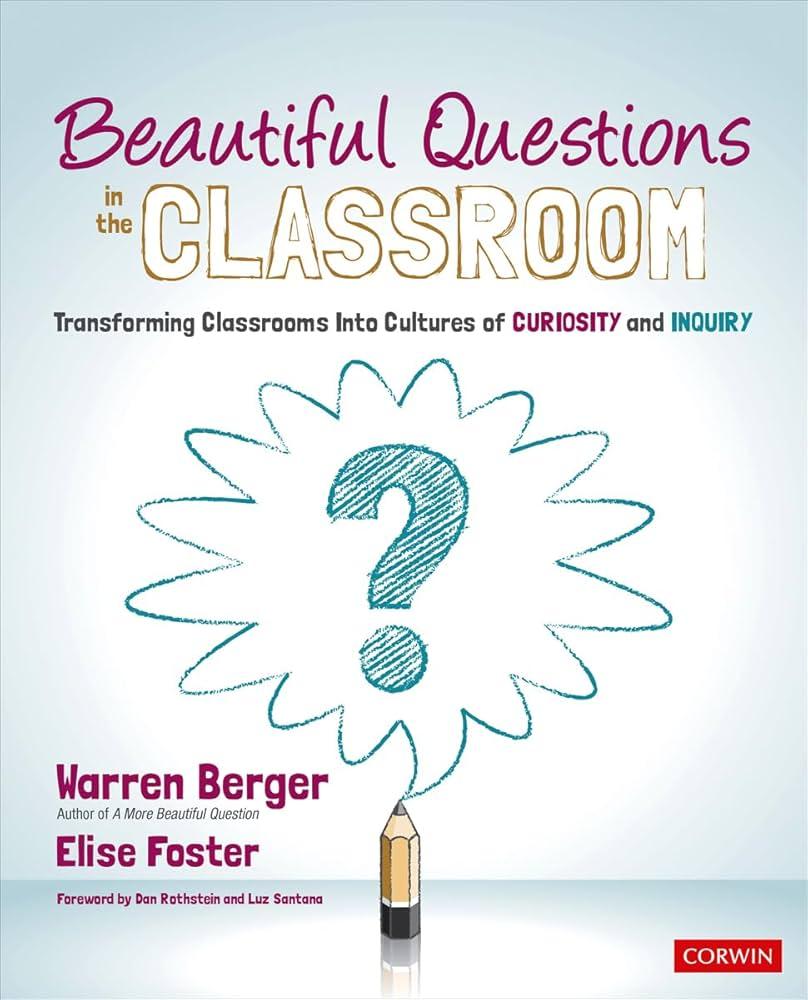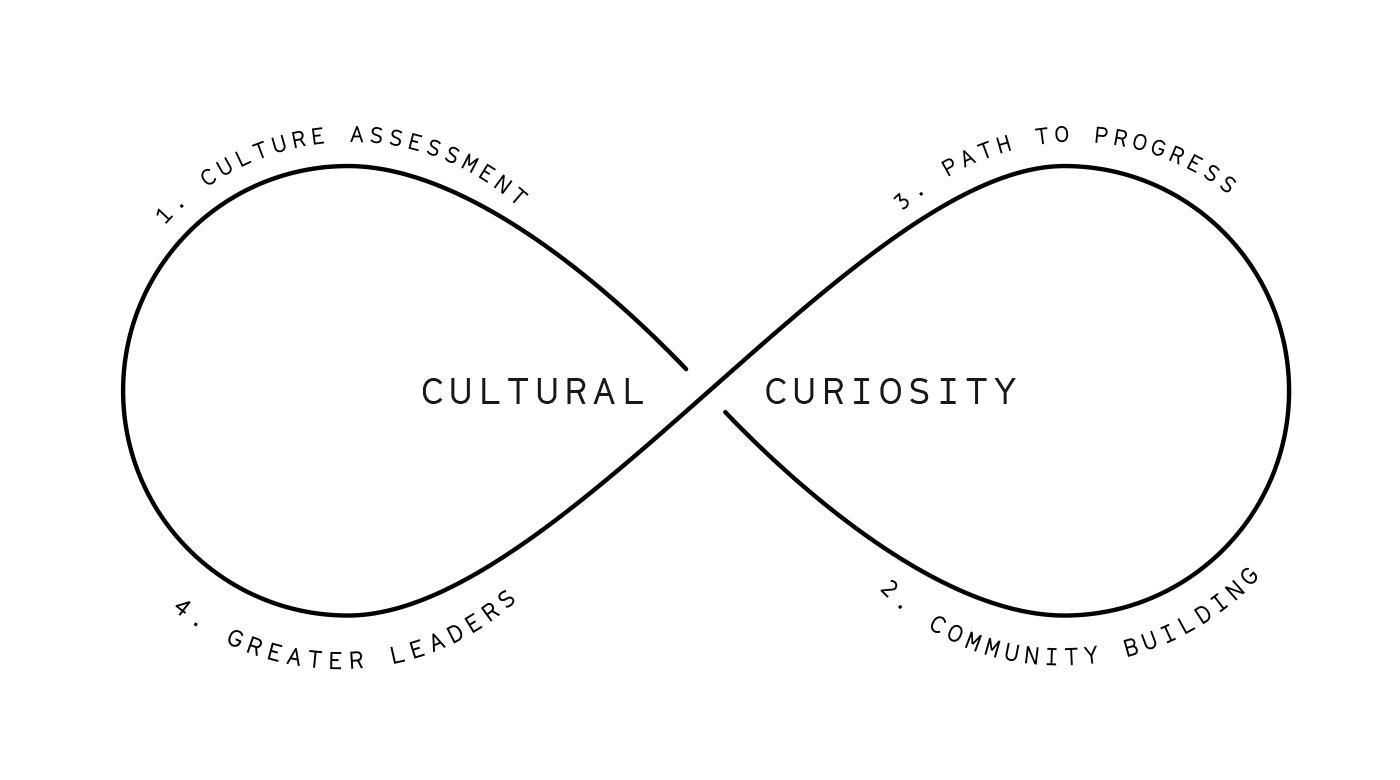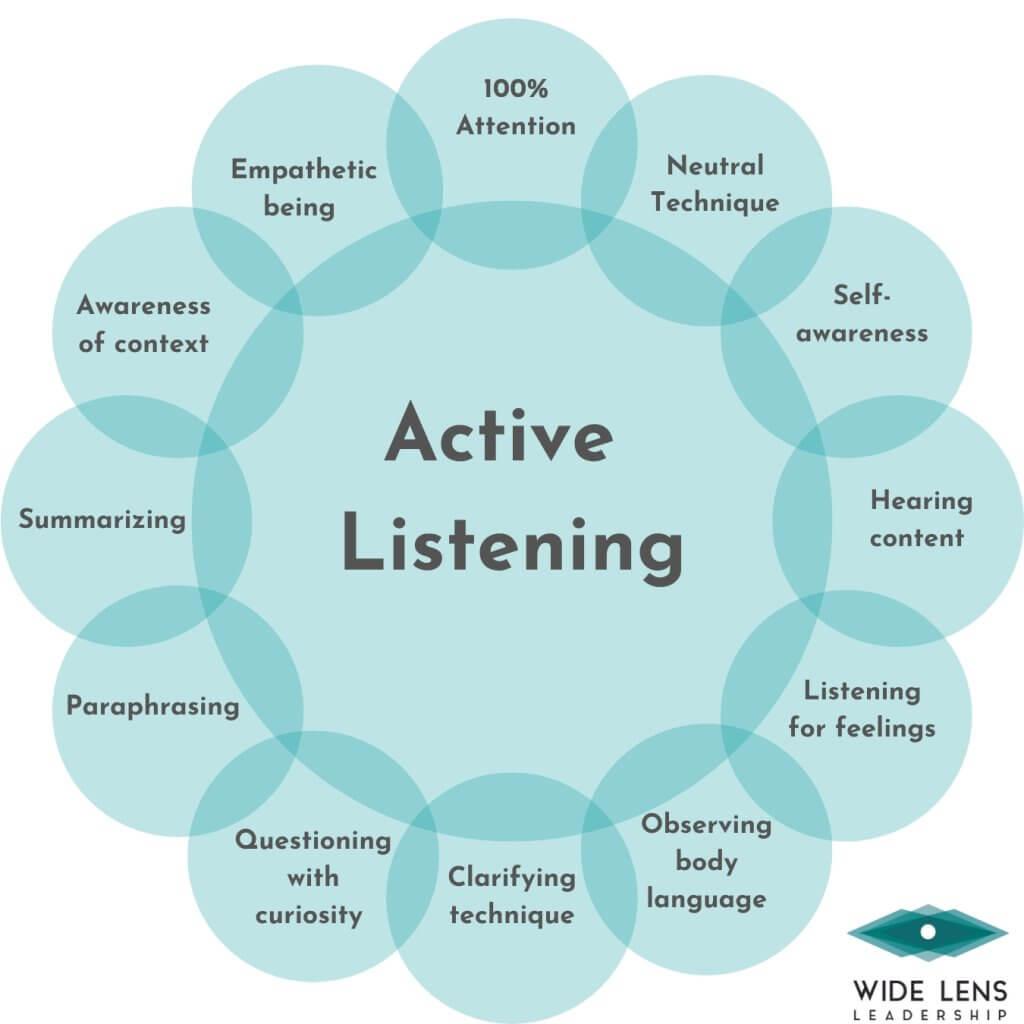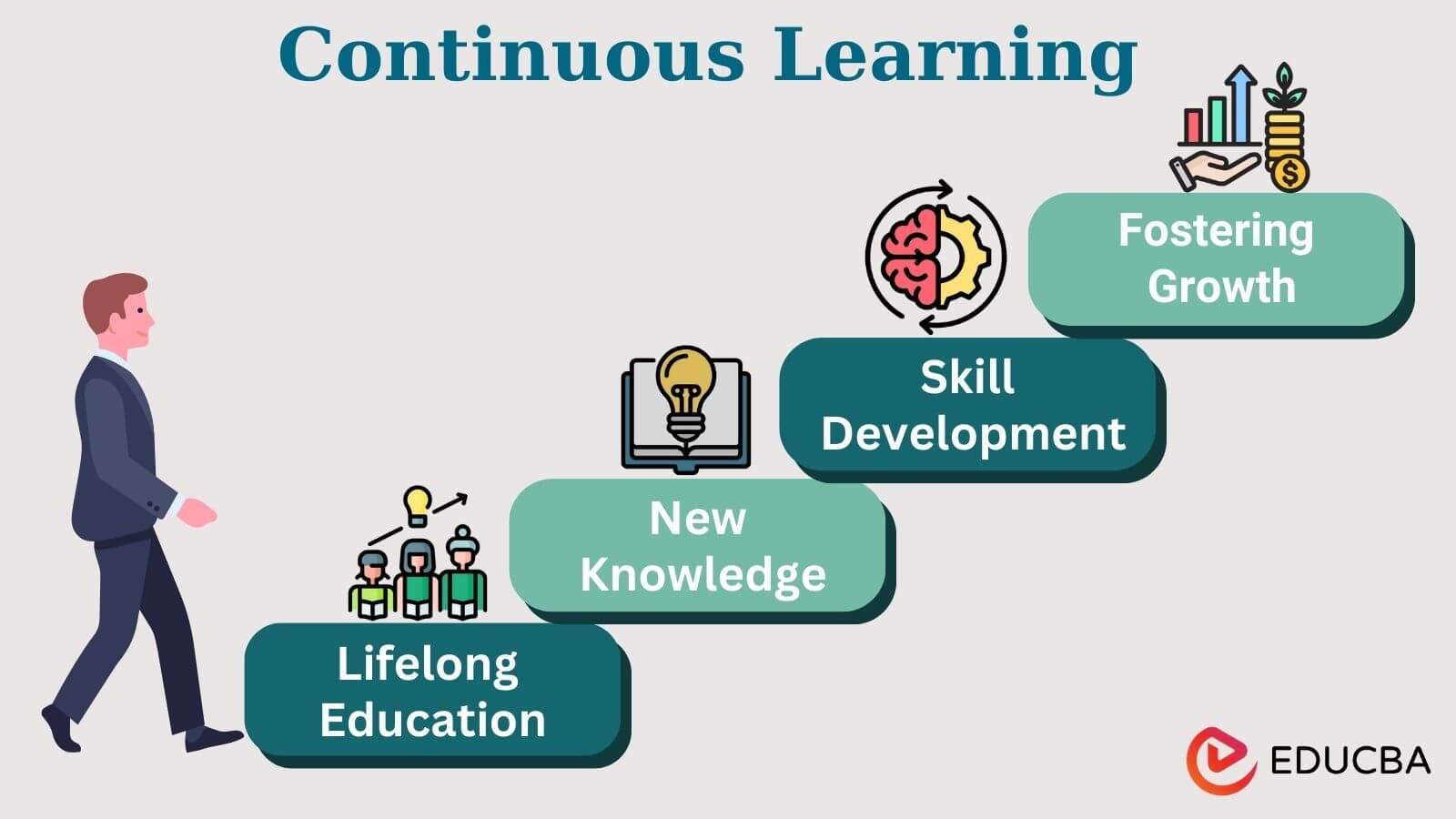Asking questions effectively in online courses can transform your learning experience. Embrace curiosity! Frame your inquiries thoughtfully, engage with peers, and foster discussions. Remember, every question is a stepping stone to deeper understanding and growth!
How to Ask Questions Effectively in Online Courses
In the digital age, where learning transcends geographical boundaries and time zones, the ability to ask questions effectively has never been more crucial. Online courses offer a wealth of knowledge at our fingertips, yet the virtual format can sometimes leave students feeling isolated or hesitant to engage. Imagine unlocking the full potential of your educational experience by transforming the way you communicate with instructors and peers. Asking the right questions not only enhances your understanding but also fosters a collaborative learning environment that benefits everyone involved. In this article, we will explore powerful strategies to help you become an effective questioner in online courses, empowering you to take charge of your learning journey. Let’s embark on this adventure together, and discover how asking thoughtful, intentional questions can pave the way to deeper insights, richer discussions, and ultimately, success in your online education.
Understanding the Importance of Questions in Online Learning
In the realm of online learning, the act of questioning serves as a vital bridge between confusion and clarity. Questions empower learners to take charge of their educational journey, transforming passive absorption of information into an active, engaging experience. When participants ask questions, they not only seek answers but also articulate their thoughts, leading to deeper understanding and retention of material.
Effective questioning can foster a more interactive learning environment. By encouraging students to voice their uncertainties, instructors can identify common knowledge gaps and adjust their teaching strategies accordingly. This dynamic exchange cultivates a sense of community among learners, enhancing collaboration and peer-to-peer support. Here are some key reasons why asking questions is essential:
- Promotes Critical Thinking: Questions challenge students to think deeply and analyze information from various perspectives.
- Enhances Engagement: Active participation through questions keeps learners involved and motivated.
- Facilitates Clarification: Inquiries help clear up misunderstandings, making complex concepts more accessible.
- Encourages Exploration: Questions can lead to further research and discovery, inspiring learners to delve deeper into subjects.
To maximize the effectiveness of questions in an online course, it’s crucial to formulate them thoughtfully. Simple, open-ended questions can elicit more comprehensive responses and stimulate discussion. For example, instead of asking, “Did you understand this concept?” consider phrasing it as, “What aspects of this concept do you find most challenging, and why?” This approach encourages learners to reflect and share their perspectives.
Moreover, creating a supportive atmosphere where questions are welcomed can significantly enhance the learning experience. Instructors should regularly remind students that curiosity is a strength, not a weakness. Acknowledging and addressing questions promptly not only validates student inquiries but also reinforces the idea that every question is valuable in the learning process.
Utilizing technology can further empower learners to ask questions effectively. Here’s a simple table that outlines some tools and their potential uses in fostering a questioning culture:
| Tool | Purpose |
|---|---|
| Discussion Forums | Encourages students to post questions and engage in dialogue. |
| Live Q&A Sessions | Provides real-time interaction with instructors for immediate support. |
| Polls and Surveys | Gathers anonymous questions and feedback, making students feel safe to ask. |
| Chat Platforms | Allows for quick, informal exchanges of questions and answers. |
the art of questioning in online learning is not merely about seeking answers; it’s about fostering a culture of inquiry that drives intellectual curiosity and collaboration. By empowering learners to ask questions, we not only enhance their understanding but also nurture a lifelong love for learning. Embrace the power of questions, and watch the educational landscape transform into a vibrant, interactive community of knowledge seekers.

Crafting Thoughtful and Relevant Questions
When engaging in online courses, the power of a well-crafted question cannot be overstated. Thoughtful and relevant questions not only enhance your own understanding but also contribute to the collective learning experience of the entire class. Here are some key strategies to consider when formulating your inquiries:
- Be Specific: Aim for precision in your questions. Instead of asking, “Can anyone explain this topic?”, try something like, “Could you clarify how the principle of X applies to our case study?” This specific approach invites detailed responses and keeps the conversation focused.
- Connect to Course Material: Reference specific lectures, readings, or discussions when asking your question. This demonstrates that you are actively engaged and encourages others to revisit the material.
- Encourage Diverse Perspectives: Frame your questions in a way that invites various viewpoints. For example, “How might different cultural perspectives influence our understanding of Y?” This not only enriches the discussion but also fosters an inclusive learning environment.
- Reflect on Learning Goals: Align your questions with your personal learning objectives. Ask yourself, “What do I really want to understand better?” Tailoring your inquiries to your goals can lead to more meaningful discussions.
In addition to crafting thoughtful questions, consider the timing and context of your inquiries. Asking questions at strategic moments, such as after a challenging concept has been introduced, can lead to deeper insights. This tactic not only benefits your understanding but also supports your peers who may have similar uncertainties.
Utilizing a structured approach can further enhance the effectiveness of your questions. A simple table can help you categorize your inquiries for clarity:
| Type of Question | Example | Purpose |
|---|---|---|
| Clarification | “What do you mean by X?” | To gain a clearer understanding of a concept. |
| Application | “How can we apply this in real-world scenarios?” | To connect theory to practice. |
| Critical Thinking | “What are the potential drawbacks of this approach?” | To explore different dimensions of a topic. |
Ultimately, the act of asking questions is not just about seeking answers; it is a vital component of the learning process. When you ask questions that are thoughtful and pertinent, you encourage dialogue, deepen engagement, and create a collaborative atmosphere that benefits everyone involved. Embrace the art of questioning, and watch as it transforms your online learning experience.
The Art of Timing: When to Ask Your Questions
Understanding the right moment to pose your questions can significantly enhance your learning experience in online courses. Timing is everything, not just in life but in the realm of education as well. Here are some key considerations to help you master the art of timing:
- Before the Lesson: If you have a question that pertains to the course material, consider reaching out before the lesson starts. This allows the instructor to address it during the session, benefiting everyone.
- During Discussions: While participating in live discussions, gauge the flow of conversation. Wait for a natural pause to interject your question, ensuring that it aligns with the topic being discussed.
- Post-Lesson Reflection: After the lesson, take some time to reflect on what you’ve learned. If questions arise, compile them for the next interaction, whether it be a live session or a forum post.
Timing your questions not only shows respect for the instructor’s time but also reflects your commitment to learning. Here’s how to further optimize your questioning approach:
- Observe Patterns: Each course has its rhythm. Pay attention to when questions are typically welcomed, whether at the end of a presentation or intermittently throughout the material.
- Leverage Peer Interaction: Engaging with your classmates can provide insights into the right moments to ask questions. If others express confusion, it may be an ideal time to voice similar queries.
- Use Technology Wisely: Many online platforms offer forums or chat features. Use these tools to ask questions when they arise, but be mindful of the timing—avoid overwhelming your peers or instructors during peak discussion times.
Creating an environment where questions are welcomed is vital for an enriching online learning experience. Consider this table that outlines the best moments to ask various types of questions:
| Type of Question | Best Time to Ask |
|---|---|
| Clarification Questions | During a live session, after an explanation |
| Conceptual Questions | During discussion breaks |
| Practical Application Questions | After completing assignments |
| Feedback Questions | At the end of a module |
By mastering the timing of your questions, you not only enrich your own learning experience but also contribute to a more dynamic and collaborative educational environment. Embrace the moments that feel right, and don’t hesitate to seek clarity and wisdom at the opportune time.
Utilizing Course Resources for Informed Inquiries
In the realm of online learning, the ability to ask effective questions is a crucial skill that can significantly enhance your educational experience. Utilizing course resources not only helps you frame your inquiries but also empowers you to engage more deeply with the content. By taking advantage of the available tools and materials, you can formulate questions that are thoughtful, relevant, and conducive to learning.
To harness the potential of your course resources, consider the following strategies:
- Review the syllabus: The syllabus is your roadmap. Familiarize yourself with the course objectives, key topics, and evaluation criteria. This foundation enables you to ask questions that are aligned with the goals of the course.
- Engage with multimedia materials: Videos, podcasts, and readings often contain nuanced information that can spark your curiosity. Take notes on points that intrigue you and formulate questions that delve deeper into those concepts.
- Participate in discussion forums: Online discussions are a goldmine for ideas. Pay attention to your peers’ posts and the instructor’s responses. This dialogue can inspire questions that build on collective insights.
Another effective approach is to categorize your questions based on the resources at your disposal. For instance, organizing inquiries into themes such as clarifications, connections, and applications can help streamline your thought process and direct your focus:
| Question Type | Example Questions |
|---|---|
| Clarifications | What does this term mean in context? |
| Connections | How does this concept relate to previous topics? |
| Applications | In what real-world scenarios can this knowledge be applied? |
Moreover, consider reaching out to your instructor during office hours or via email. Crafting your questions with precision shows respect for their time and expertise. Be clear and concise, providing context when necessary. This not only fosters a positive interaction but also encourages a mentoring relationship that can enhance your learning.
Lastly, embrace the practice of reflection. After receiving feedback or answers to your questions, take the time to reflect on how the information integrates into your understanding of the subject. This reflexive process ensures that you’re not merely accumulating knowledge but actively transforming it into personal wisdom.

Engaging with Instructors: Building a Rapport for Better Responses
Engaging with your instructors can significantly enhance your online learning experience. Building a rapport not only opens the door for more insightful responses but also creates a supportive learning environment. Here are some effective strategies to foster that relationship:
- Personalize Your Communication: When reaching out, use the instructor’s name and reference specific aspects of their course. This shows that you value their expertise and are invested in the material.
- Be Respectful and Professional: Always maintain a polite tone, even if you’re frustrated. A respectful approach increases the chances of receiving a thoughtful response.
- Ask Open-Ended Questions: Instead of yes or no questions, frame your inquiries to invite deeper discussion. For instance, “Can you elaborate on the implications of this theory?” encourages a more detailed answer.
- Show Appreciation: Acknowledge their efforts in responding to your queries. A simple thank you can go a long way in establishing a positive rapport.
Incorporating your instructor’s feedback into your future questions can also show your commitment to learning and improvement. This not only demonstrates your growth but also encourages instructors to invest more time in your development. For example:
| Feedback Received | Action Taken |
|---|---|
| More examples needed in explanations | Included additional examples in follow-up queries |
| Clarify understanding of core concepts | Formulated questions that reflect deeper comprehension |
Participating actively in discussion forums can also enhance your relationship with instructors. Engage with their posts and share relevant insights, which not only showcases your enthusiasm but also positions you as a proactive learner. This approach can encourage instructors to engage with you more frequently and personally.
don’t hesitate to share your personal experiences related to the course content. This not only enriches the discussion but also humanizes your interactions, making it easier for instructors to relate to you. Remember, instructors are also passionate about the subjects they teach, and sharing your enthusiasm can create a meaningful connection.

Leveraging Peer Interaction for Diverse Perspectives
In the realm of online learning, the power of peer interaction is often underestimated. Engaging with fellow learners not only enriches your understanding but also exposes you to a plethora of viewpoints that can challenge and refine your own thinking. When you pose questions during discussions, you open doors to insights that may never have occurred to you. Here are some strategies to effectively leverage these interactions:
- Encourage Open Dialogue: Create an inviting atmosphere by asking questions that stimulate conversation. This can be as simple as, “What are your thoughts on this topic?” or “Can anyone share a different perspective?”
- Build on Others’ Ideas: When responding to a peer, reference their thoughts directly. For instance, “I found your point about X intriguing. How do you think this relates to Y?” This not only acknowledges their contribution but encourages deeper exploration.
- Ask Follow-Up Questions: Don’t hesitate to dig deeper! If someone shares an idea, follow up with a question like, “What experiences led you to that conclusion?” This can lead to richer discussions and more varied perspectives.
Creating a culture of inquiry among peers can lead to a vibrant learning environment. To facilitate this, consider incorporating structured interactions through collaborative platforms where everyone can contribute. Utilizing discussion boards or group chats can provide a space for more reflective and thoughtful responses, allowing ideas to take root and flourish.
Additionally, it’s essential to embrace diversity in responses. When interacting with peers from different backgrounds, consider setting up a table to compare varying viewpoints. For example:
| Perspective | Key Insight |
|---|---|
| Student A (Experiential) | Real-life application enhances understanding. |
| Student B (Theoretical) | Conceptual frameworks provide clarity. |
| Student C (Cultural) | Context shapes learning perspectives. |
Asking questions not only supports your learning journey but also fosters a collaborative spirit among peers. By actively engaging with others, you contribute to a richer, more dynamic educational experience. Remember, each question you ask can be a catalyst for a deeper understanding and appreciation of diverse perspectives.

Embracing the Power of Follow-Up Questions
In any online course, the journey of understanding often unfolds through a series of inquiries. While the initial questions set the stage for exploration, it’s the follow-up questions that truly deepen comprehension. They allow learners to dive beneath the surface, revealing complexities that a single query might overlook. By embracing this dynamic, both instructors and students can foster a richer learning environment.
Consider the impact of well-placed follow-up questions:
- Clarification: When a concept seems hazy, follow-up questions can help clarify and refine understanding. For example, asking “Can you provide an example?” encourages the instructor to illuminate the topic further.
- Expansion: Encourage broader thinking by asking questions like “How does this relate to what we learned earlier?” This not only connects ideas but also reinforces retention.
- Application: Questions such as “In what scenarios can this be applied?” prompt learners to think critically about real-world implications, enhancing engagement.
To effectively utilize follow-up questions, timing and phrasing are crucial. An engaging approach involves:
- Active Listening: Pay close attention to discussions. This not only informs your follow-up but also shows that you value contributions.
- Open-Ended Queries: Frame questions in a way that invites elaboration. Instead of asking “Is this correct?”, try “What are your thoughts on this perspective?”
- Encouraging Dialogue: Foster a collaborative atmosphere by inviting peers to ask their own follow-up questions. This collective engagement can lead to richer discussions.
The art of asking follow-up questions can be further enhanced through a structured approach. Below is a simple framework that learners and educators can adopt:
| Type of Follow-Up Question | Example | Purpose |
|---|---|---|
| Clarifying | “What do you mean by that?” | To ensure understanding |
| Expanding | “Can you elaborate on that point?” | To gain deeper insight |
| Connecting | “How does this link to our previous topic?” | To reinforce learning |
| Reflective | “What implications does this have?” | To encourage critical thinking |
This approach not only cultivates a culture of curiosity but also empowers individuals to take ownership of their learning. In an online environment, where direct interaction may be limited, follow-up questions become a vital tool for engagement and understanding. By practicing and encouraging this technique, participants can transform their online courses into vibrant spaces of discovery and insight.

Creating a Safe Space for Inquiry in Online Environments
In the realm of online learning, fostering an environment where questions are welcomed is crucial for both educators and learners. Creating a safe space for inquiry not only enhances comprehension but also encourages a vibrant community of learners who feel empowered to share their thoughts. Here are several strategies to cultivate this supportive atmosphere:
- Encourage Open Dialogue: Make it clear that all questions are valid. Use language that promotes inquiry, such as, “There are no silly questions.” This sets a tone that values curiosity and participation.
- Model Questioning Behavior: As an instructor, share your thought process and ask questions during lectures. Demonstrating your own vulnerabilities can inspire students to voice their uncertainties.
- Provide Anonymous Options: Integrate platforms where students can pose questions anonymously. This can alleviate fear and help those who might hesitate to speak out in a public forum.
- Regularly Check In: Use polls or feedback forms to gauge the comfort level of students regarding asking questions. This feedback can be invaluable in adapting your approach to their needs.
Additionally, consider implementing structured opportunities for inquiry:
| Activity | Description | Frequency |
|---|---|---|
| Q&A Sessions | Dedicated time for students to ask questions live. | Weekly |
| Discussion Boards | Encourage students to post questions and respond to peers. | Ongoing |
| Peer Mentoring | Pair students for one-on-one support. | Bi-weekly |
Your approach in these online settings can transform the learner’s experience. By actively fostering a culture that prioritizes inquiry, you can cultivate critical thinking skills and deepen understanding. Remind students that every question contributes to the collective knowledge of the group and that their voice is essential.
consider the role of constructive feedback. Encourage peers to build on each other’s questions and responses positively. This not only validates the inquirer’s contribution but also enriches the learning experience for everyone involved. When students see that their inquiries lead to meaningful discussions, they are more likely to engage actively and confidently in the future.

Transforming Questions into Learning Opportunities
In the realm of online learning, the way we approach questions can significantly shape our educational experience. Instead of viewing questions as mere inquiries, consider them as doorways to deeper understanding. When students ask thoughtful questions, they not only seek clarity but also pave the way for exploration and discovery. This transformative process elevates the standard online course from a simple transfer of information to an interactive learning journey.
To foster an environment where questions thrive, it’s essential to encourage a culture of curiosity. Here are some strategies to guide you:
- Normalize Questioning: Let learners know that asking questions is a vital part of their educational journey. Acknowledge inquiries by responding promptly and thoughtfully, reinforcing that every question is valuable.
- Encourage Peer Interaction: Create discussion forums or group activities where students can pose questions to one another. This not only enhances engagement but also allows them to gain diverse perspectives.
- Use Open-Ended Questions: Frame your questions in a way that requires more than a yes or no answer. Open-ended questions stimulate critical thinking and encourage students to express their thoughts more deeply.
Moreover, providing structured guidance on how to formulate effective questions can empower students. Consider implementing a framework that includes:
| Question Type | Description |
|---|---|
| Clarification Questions | Seeking to understand a concept or instruction better. |
| Analytical Questions | Encouraging deeper analysis of the material. |
| Application Questions | Exploring how concepts can be applied in real-world scenarios. |
embrace the power of feedback as a means of refining questioning techniques. After addressing questions, provide constructive feedback not only on the content but also on the quality of the questions themselves. This practice reinforces the idea that effective questioning is a skill that can be cultivated over time.
By , we engage learners in a dynamic and meaningful educational dialogue. This approach not only enriches their understanding but also fosters a lifelong love of learning, empowering them to seek knowledge beyond the confines of the course.

Encouraging a Culture of Curiosity Among Your Peers
In the realm of online education, fostering a sense of curiosity can transform the learning experience for everyone involved. When participants feel encouraged to ask questions, they not only deepen their understanding but also inspire others to explore and engage. Here are some strategies to cultivate this environment:
- Model Inquisitive Behavior: As an educator or peer, demonstrate your own curiosity. Share your questions openly during discussions, encouraging others to follow suit. If you show enthusiasm for inquiry, it becomes contagious.
- Create Safe Spaces: Establish an atmosphere where questions are welcomed and valued. Remind participants that no question is too small or too trivial. Acknowledge and appreciate every query, reinforcing a culture where curiosity thrives.
- Utilize Technology: Leverage discussion boards and chat features to create opportunities for dialogue. Tools like forums or dedicated Q&A sessions allow participants to post questions at their convenience, which can lead to richer discussions and collaborative learning.
- Encourage Peer Support: Encourage participants to respond to each other’s queries. Not only does this build community, but it also reinforces the idea that everyone has valuable insights to contribute.
In addition to these strategies, consider the implementation of structured activities that promote questioning:
| Activity | Description |
|---|---|
| Question Storming | Gather in small groups to generate as many questions as possible about a topic. |
| Curiosity Journals | Encourage participants to keep a journal of questions they have throughout the course. |
| Peer Interviews | Pair participants to interview each other, focusing on their questions and thoughts about the course material. |
it’s essential to regularly reflect on the process of inquiry within the learning community. Consider implementing feedback sessions where participants can share how questioning has impacted their experience. Ask them about:
- What questions have led to the most interesting discussions?
- How has their understanding of the material evolved through inquiry?
- Which strategies have they found most effective in asking questions?
By prioritizing curiosity and embracing the power of questioning, you can enhance the online learning experience, making it more dynamic, enjoyable, and enriching for all participants. Each question asked is not just a request for information; it’s a stepping stone toward greater knowledge and collaboration. Let curiosity guide your learning journey!

Balancing Specificity and Open-Endedness in Your Queries
When participating in online courses, the way you ask questions can significantly impact your learning experience. Striking the right balance between being specific and allowing for open-ended exploration can lead to more fruitful discussions and deeper understanding. Here are some key points to consider when formulating your queries:
- Define Your Purpose: Before crafting your question, take a moment to clarify what you hope to achieve. Are you seeking precise information, or are you looking for a broader perspective? Understanding your objective will guide your wording.
- Be Clear and Direct: Specific questions often yield better responses. Instead of asking, “Can someone explain the topic?” consider asking, “What are the key differences between X and Y in this context?” This precision helps responders focus on your needs.
- Encourage Exploration: Open-ended questions can inspire creativity and deeper thinking. Phrasing your question to invite discussion, such as “What are some potential implications of this theory in real-world scenarios?” allows others to share their insights and experiences.
Combining both elements can lead to a richer dialogue. For instance, you might start with a specific question and then follow up with an open-ended one to broaden the conversation:
| Specific Question | Open-Ended Question |
|---|---|
| What are the major factors affecting climate change? | How can we apply this knowledge to promote sustainable practices? |
| Can you explain the process of photosynthesis? | What implications does this have for our understanding of food chains? |
Additionally, consider the audience and context of your question. Tailoring your queries to the level of expertise of your peers and instructors can foster a more welcoming environment for dialogue. A well-constructed question not only clarifies your own understanding but also encourages others to engage and share their perspectives.
Lastly, don’t hesitate to refine your questions as discussions evolve. If you receive a response that sparks further curiosity, follow up with additional inquiries that delve deeper into the topic. This iterative approach not only enhances your learning but also contributes to a collaborative atmosphere beneficial for everyone involved.

Practicing Active Listening to Enhance Your Questioning Skills
Active listening is a skill that transforms the way we engage in discussions, especially in the context of online courses. By fully concentrating, understanding, and responding to what others are saying, you not only enhance your comprehension but also enrich your ability to formulate insightful questions. Here are some key practices to improve your active listening skills:
- Focus on the Speaker: Minimize distractions and give your full attention to the person speaking. This shows respect and allows you to absorb the information being shared.
- Reflect and Clarify: Repeat back what you’ve heard in your own words. This not only demonstrates that you are listening but also provides an opportunity for corrections and deeper understanding.
- Ask Open-Ended Questions: Encourage further discussion by asking questions that require more than a yes or no answer. This invites the speaker to elaborate and share more insights.
In the world of online learning, where non-verbal cues are often absent, active listening becomes even more critical. When you listen with intent, you can identify gaps in information and areas that spark your curiosity, leading to better questions. Use the following strategies to elevate your questioning skills:
- Identify Key Themes: Pay attention to recurring themes or points of interest in your course material. Highlight these as potential areas for deeper inquiry.
- Maintain an Open Mind: Approach discussions without preconceived notions. This will help you to ask more relevant and meaningful questions based on the conversation’s flow.
- Utilize Visual Aids: If the course includes videos or slides, refer to them while listening. This will help you draw connections and formulate questions that are contextually relevant.
Engaging in discussions can also be enhanced through collaborative practices. Consider this simple table that outlines how active listening can lead to effective questioning:
| Active Listening Technique | Resulting Questioning Skill |
|---|---|
| Summarizing Information | Formulating Clarifying Questions |
| Non-Verbal Cues | Asking About Emphasis and Importance |
| Empathetic Responses | Probing for Personal Insights |
remember that the art of questioning is a dynamic process. Each interaction offers a new opportunity to practice and refine your skills. As you cultivate active listening, you will find that your questions not only gain depth but also foster richer discussions and enhance your learning experience. Embrace the journey of becoming a more effective questioner—one conversation at a time.

Reflecting on Responses: The Key to Continuous Learning
Engaging in online courses presents unique challenges, particularly when it comes to fostering a culture of inquiry. Asking questions effectively is not just about seeking answers; it is about creating a dynamic learning environment where exchanges foster growth and understanding. To truly evolve, learners must embrace the art of questioning and view each response as a stepping stone in their educational journey.
Consider the following strategies to enhance your questioning skills:
- Be Specific: Tailor your questions to be precise, focusing on particular aspects of the content. This not only clarifies your inquiry but also encourages more detailed responses.
- Encourage Elaboration: Prompt your peers or instructors to expand on their answers. Phrases like “Can you explain further?” or “What led you to that conclusion?” can deepen the discussion.
- Utilize Open-Ended Questions: Frame questions that require more than a yes or no answer. This invites thoughtful dialogue and critical thinking.
- Reflect on Responses: After receiving an answer, take a moment to reflect on it. This practice not only solidifies your understanding but also opens up avenues for follow-up questions.
Additionally, creating a habit of active listening is paramount. When you truly focus on what is being said, you can formulate more insightful questions. This practice not only enhances your learning experience but also demonstrates respect and engagement towards your instructors and classmates.
Incorporating a feedback loop in your questioning technique can also be transformative. After posing a question and receiving a response, consider creating a small table to summarize key points or insights gained. Here’s a simple format you could use:
| Question Asked | Response Gained | Key Insights |
|---|---|---|
| What are the primary benefits of using multimedia in learning? | Multimedia engages different learning styles and enhances retention. | Engagement and retention are critical for effective learning. |
| How can collaboration improve learning outcomes? | Collaboration fosters diverse perspectives and promotes critical thinking. | Diverse perspectives are essential for holistic understanding. |
Ultimately, the heart of effective questioning lies in a commitment to continuous learning. Each question you ask serves not only to clarify your own understanding but also to enrich the learning experience for everyone involved. Cultivating this skill transforms your educational journey into a collaborative exploration, where each response is an opportunity for deeper insight and growth.

Harnessing Technology to Elevate Your Questioning Techniques
In the era of online learning, the ability to ask effective questions has never been more crucial. Harnessing technology provides educators and learners with innovative tools to enhance questioning techniques, making interactions more engaging and insightful. By leveraging specific platforms and applications, you can transform the way you approach inquiries, paving the way for deeper understanding and collaboration.
Utilize Discussion Forums: Many online courses integrate discussion forums where students can post questions and respond to peers. To maximize their potential, consider the following:
- Post open-ended questions: Encourage critical thinking by asking questions that require elaboration rather than simple yes or no answers.
- Encourage peer interaction: Prompt students to respond to each other’s questions, fostering a community of inquiry.
- Use multimedia: Share videos or articles related to your question to provide context and stimulate discussion.
Leverage Polling Tools: Real-time polling tools can be used during live sessions or recorded lectures. These tools allow you to gauge understanding and gather immediate feedback. Here are ways to use them effectively:
- Rate understanding: Ask students to rate their grasp of a topic on a scale, which can guide your next steps in instruction.
- Prompt reflection: Create polls that ask students to reflect on what they found most challenging, opening up pathways for further discussion.
- Encourage participation: Use polls to get students involved in shaping the direction of the lesson, making them feel more invested in the learning process.
Interactive Platforms: Platforms such as Padlet or Mentimeter allow for collaborative questioning in real-time. By integrating these tools, you can:
- Create a visual question board: Students can post questions anonymously, allowing for a free exchange of ideas without the fear of judgment.
- Prioritize questions: Use upvoting features to let students signal which questions they find most relevant, guiding your focus in discussions.
- Facilitate brainstorming: Encourage students to build on each other’s questions to foster a deeper and more comprehensive understanding of the subject matter.
Incorporate Video Responses: Asynchronous learning often lacks personal connection, but integrating video responses can bridge this gap. Consider these strategies:
- Record personalized feedback: Instead of written responses, use video to address student questions, adding a human element to your communications.
- Encourage video questions: Motivate students to submit video questions, enhancing engagement and allowing for non-verbal cues.
- Use screencasting: When explaining complex concepts, screen recording can help clarify your answers visually, reinforcing learning.
Frequently Asked Questions (FAQ)
Q&A: How to Ask Questions Effectively in Online Courses
Q1: Why is asking questions important in an online course?
A1: Asking questions is the lifeblood of effective learning! In an online course, where face-to-face interactions are limited, questions become your bridge to clarity and understanding. They stimulate critical thinking, promote engagement, and encourage deeper exploration of the subject matter. By asking the right questions, you not only enhance your own learning but also contribute to a vibrant learning community that fosters collaboration and shared knowledge.
Q2: What are some tips for formulating good questions in an online setting?
A2: Crafting effective questions starts with being specific and concise. Instead of asking vague questions like, “Can you explain this?”, try to pinpoint what you’re struggling with, such as, “Could you clarify the concept of X in relation to Y?” This specificity not only gives instructors a clearer direction but also helps you articulate your thoughts better. Additionally, consider the context of your question—relating it to course materials or discussions can provide more depth and encourage meaningful responses.
Q3: How can I create an environment that encourages questions in online courses?
A3: Fostering a culture of inquiry begins with your own approach. Share your questions openly in discussion forums and encourage your peers to do the same. Use positive reinforcement by acknowledging when others ask insightful questions. Additionally, engage actively with your classmates and instructors—respond to their inquiries and express curiosity about their perspectives. By being a proactive participant, you inspire others to join the conversation, creating a dynamic and supportive learning atmosphere.
Q4: What should I do if I feel hesitant to ask questions in an online course?
A4: It’s perfectly normal to feel hesitant, but remember: every great learner has asked questions! Start by reminding yourself that your questions are valid and important. Try writing down your thoughts before posting them; this can help clarify your doubts and boost your confidence. You might also consider reaching out to a classmate or instructor privately to share your questions. The key is to take that first step—once you do, you’ll likely find that your willingness to engage will grow exponentially!
Q5: Can asking questions improve my overall learning experience? How?
A5: Absolutely! When you ask questions, you take ownership of your learning journey. This active involvement keeps you engaged and motivated. Furthermore, questions can lead to new insights, sparking ideas that enrich your understanding of the material. By challenging yourself to inquire deeper, you not only solidify your knowledge but also develop critical thinking skills that will serve you well beyond the classroom. Embrace the power of inquiry—each question you ask is a step towards becoming the expert you aspire to be!
Q6: How can I effectively follow up on the answers I receive?
A6: Following up is crucial! After receiving an answer, take a moment to reflect on it—does it address your question fully? If not, don’t hesitate to ask for further clarification. You can say something like, “Thank you for your answer! Can you elaborate on…?” Engaging with responses not only enhances your understanding but also demonstrates to your instructors and peers that you value their input and are committed to your learning. This ongoing dialogue enriches the entire course experience for everyone involved.
Conclusion: As you embark on your online learning journey, remember that asking questions is not just a necessity; it’s a powerful tool for growth. Embrace your curiosity, empower yourself with knowledge, and inspire others by contributing to a culture of inquiry. Let your questions illuminate the path to deeper understanding and connect you with the vibrant community of learners around you!
To Conclude
As we conclude our exploration of how to ask questions effectively in online courses, remember that your voice is a powerful tool in the learning process. Embracing curiosity and seeking clarity not only enriches your own educational experience but also contributes to a vibrant community of learners. Each question you pose is an opportunity for growth—both for you and your peers.
So, step into your next online course with confidence and intention. Let your questions be a beacon that guides you and others towards deeper understanding and engagement. The more you inquire, the more you empower not only yourself but also those around you.
Believe in the power of your questions; they are the keys to unlocking knowledge and fostering connections. As you navigate the digital learning landscape, remember: effective questioning is not just a skill—it’s an art. Embrace it, practice it, and watch as it transforms your learning journey into a truly enriching adventure. The classroom may be virtual, but the impact of your inquiries can be profoundly real. Go forth and ask boldly!




